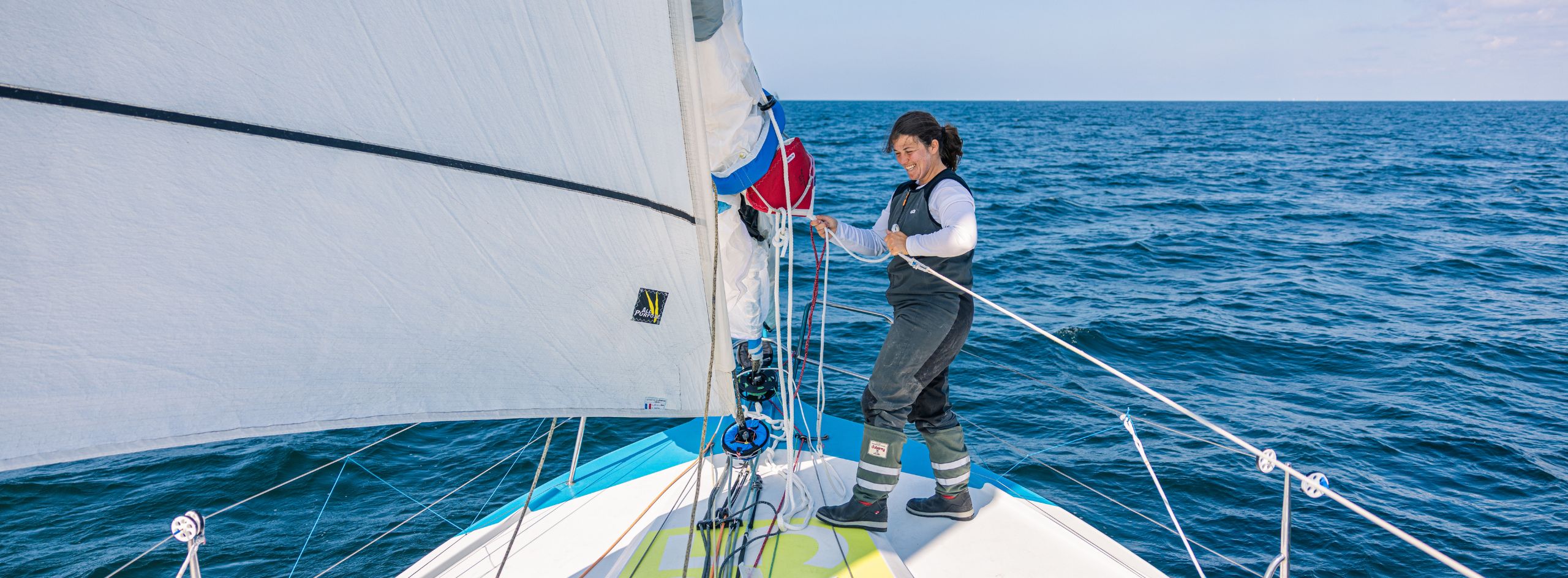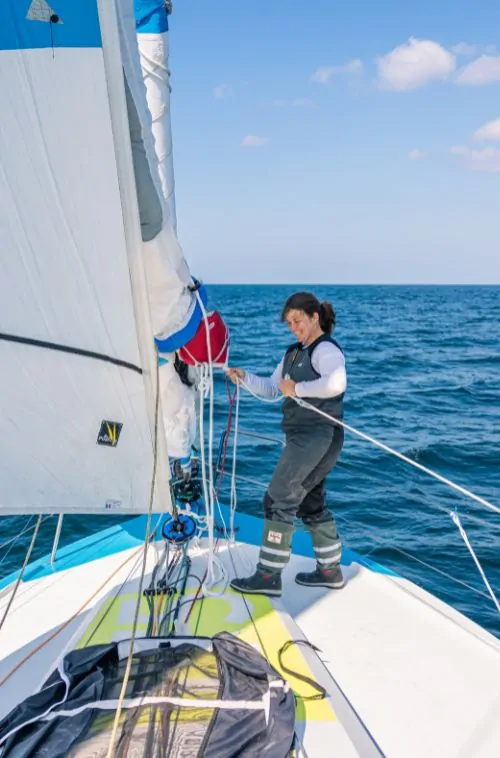Tackling the Transat Café l’Or – An Interview with Aina Bauza
Fresh off setting a new solo Transatlantic World Record in a monohull in 2024, Gill ambassador, Aina Bauza has set her sights on a new challenge, tackling the iconic Transat Café l’Or (formerly the Transat Jacques Vabre).
Aina will sail aboard the Class 40 Grand Rhino alongside French co-skipper, Axelle Pillain, a duo honoured with the prestigious Cap pour Elles scholarship, aimed at supporting and elevating female skippers.
Beginning October 26th, this double-handed transatlantic race between Le Havre, France, and the Caribbean Island of Martinique is one of the most demanding on the Class 40 regatta schedule.
Unlike most, they’re building this campaign from the ground up, handling everything themselves – from securing a main sponsor to boat prep and intense training. We sat down with Aina to dive into how she’s dealing with the preparations.
1. What initially drew you to this specific challenge, and what keeps you motivated given the intense schedule?
What motivated me from the beginning was the desire to keep progressing towards bigger and more ambitious boats. After achieving the world record, I didn’t stop for a moment, I was already thinking about the next challenge with a larger boat. That’s what led us to the Class40 project.
It’s taken us a huge amount of time and effort to even get on the water with a Class40, but we made it. We’ve started training, and now the most important thing is to keep building the project. We’re still missing part of the funding, we don’t have our main sponsor yet, but we’ve laid the foundation. We’re out there sailing, working hard, and ready to show what we can do.
What keeps me motivated is knowing how far we’ve come, and how much more is ahead. I’m also lucky to share this journey with Axelle. We support each other through the highs and the lows, and we both believe in what we’re doing. That makes the intense schedule worth it.
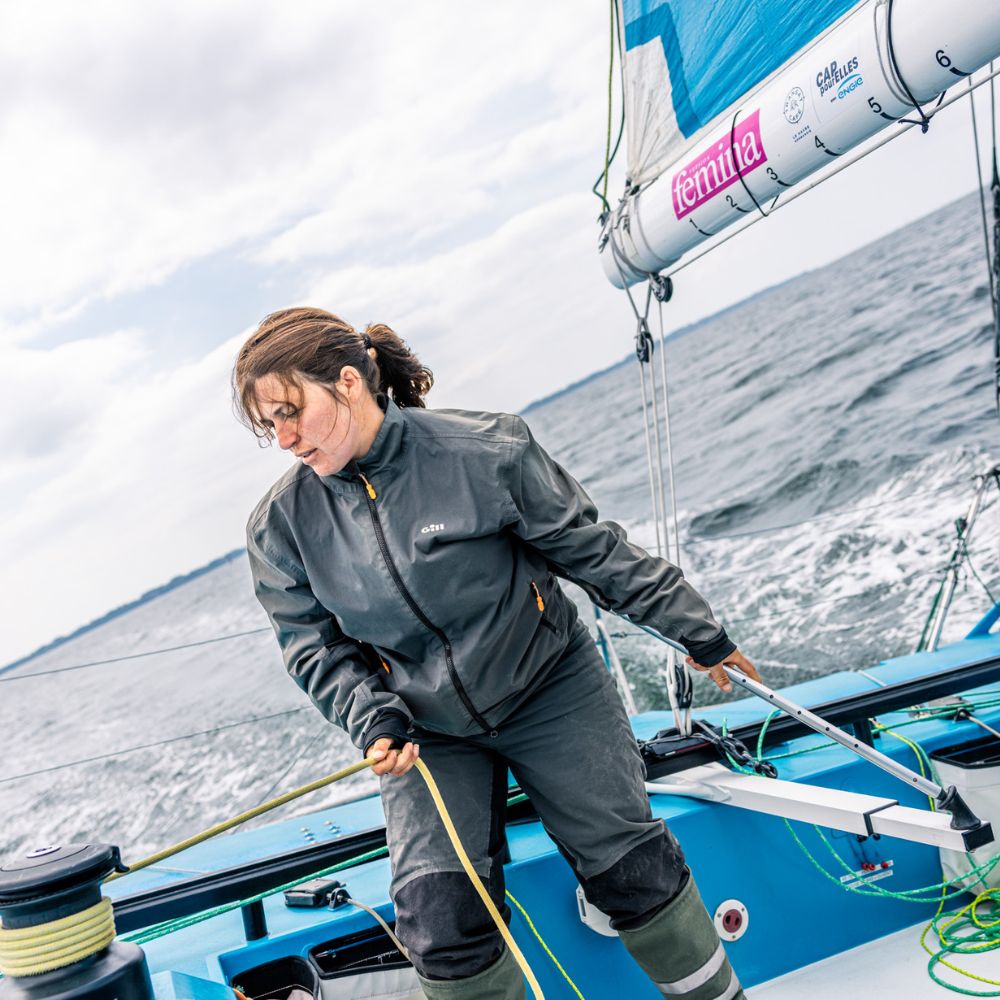
2. You’re doing everything yourselves for now, without a technical team. How has this hands-on approach shaped your understanding of the boat and the logistics of a transatlantic race?
For now, it’s just the two of us, and sometimes a few friends, working on the boat. We’re handling everything ourselves: maintenance, preparation, and the logistics for the transatlantic race. It’s intense, but it’s also a great opportunity to really get to know every detail of the boat. That kind of knowledge is crucial when you’re offshore and need to fix things quickly and independently.
Of course, our goal is to secure the funding that would allow us to bring in a proper technical team. That way, we could focus more on navigation, racing, and have the time and energy to work on sponsor relations and activations, which are just as important for building a sustainable project. But for now, we’re learning a lot, and it’s empowering to feel so connected to every part of the boat and the campaign.
3. What’s been the most unexpected challenge you’ve faced so far in preparing for the Transat Café L’Or, and how did you overcome it?
The biggest and most unexpected challenge has been simply building a project that could make it to the start line. I actually started with a different project that had funding, but I realized it wasn’t aligned with my values or vision, so I made the tough decision to step away and start from scratch.
The second time, I began building a new campaign, but my co-skipper had to leave the project for personal reasons. That was another big setback. But then I met Axelle, and I was really lucky. She’s an incredibly talented sailor with a strong technical background, and I truly believe we can achieve great things together.
Each of these moments could have been the end of the road, but they weren’t. They’ve made me more resilient and surer than ever of why I’m doing this.
4.You mentioned splitting your time with Axelle. How do you and Axelle divide responsibilities, and what are your strengths as a team when facing such a multifaceted project?
We split responsibilities quite naturally based on our strengths and experience. Axelle has a very strong technical background, so she’s incredible when it comes to boat preparation, rigging, and optimizing systems onboard. I focus more on the project management side, sponsors, logistics, communication, and making sure everything stays on track outside the boat.
But when it comes to sailing, we’re totally equal. We both have strong racing instincts, and we trust each other 100%. We push each other, and that creates a really solid balance between precision and performance.
Our biggest strength as a team is mutual respect. We both know how much the other is giving to this project, and we never take it for granted. That kind of trust is essential when you’re taking on something as complex and intense as a transatlantic race.
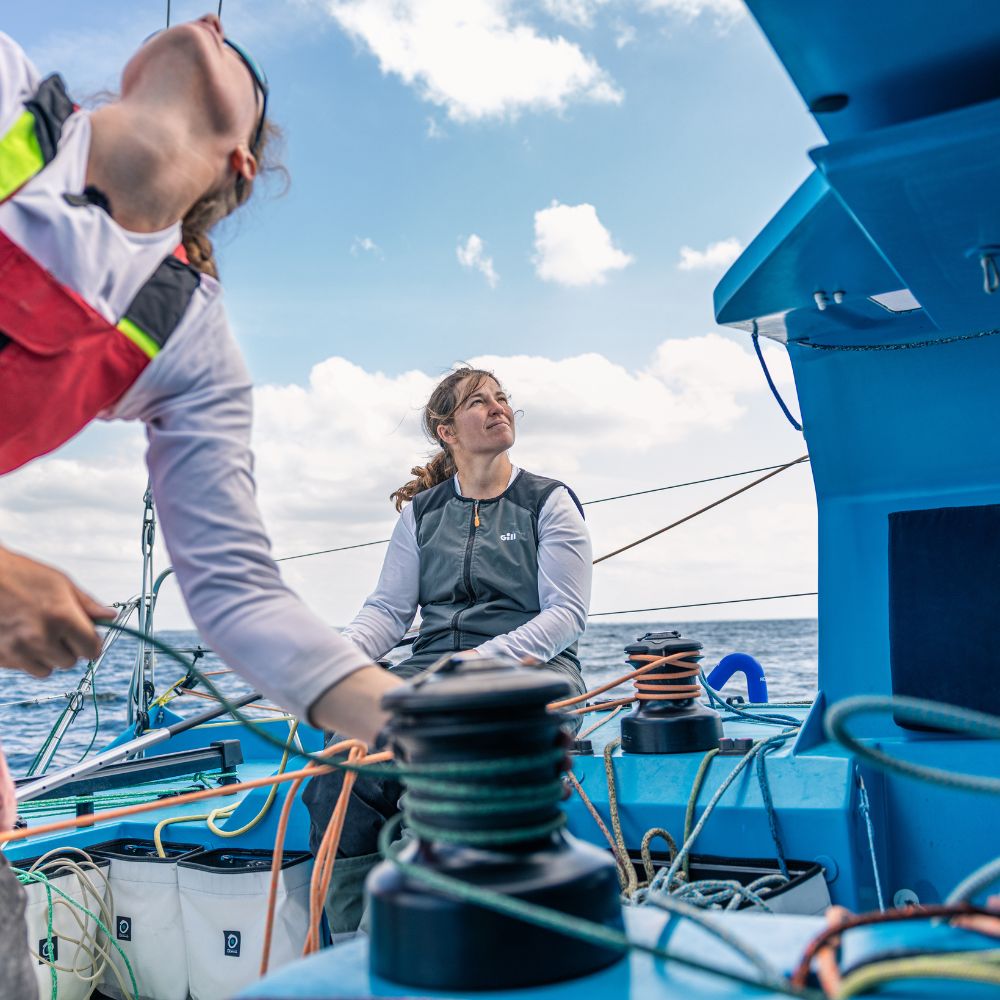
5. The Transat Café L’Or is your big goal. Beyond the physical training and boat preparation, what are your key strategic considerations for this specific race?
One of the biggest strategic elements for this race is teamwork. It’s a double-handed transatlantic, so our ability to communicate, make decisions quickly, and manage energy and rest effectively will be key to performance. We’re constantly working on that balance, knowing when to push and when to recover.
Weather routing is another major focus. The Atlantic is full of variables, so we’re studying historical patterns and training with different routing tools to be ready for multiple scenarios.
We’re also thinking long-term: how to manage risk, preserve the boat, and avoid breakages. It’s a fine line between racing hard and making sure we finish strong. Our goal isn’t just to cross the Atlantic, it’s to be competitive and to learn everything we can for the next step in our project.
6. What lessons have you learned from past sailing experiences that you believe will be most valuable during the Transat Café L’Or?
One of the biggest lessons I’ve learned is that preparation is everything. During my solo world record crossing, I realised how much the success of an offshore challenge depends on what you’ve done before even leaving the dock, checking every detail, knowing your boat inside out, and being mentally ready to handle the unexpected.
I also learned the importance of staying calm under pressure. Offshore, things go wrong, it’s part of the game. What matters is how you react and how fast you can adapt. Those moments can define the race.
And finally, I’ve learned that mindset makes a huge difference. Pushing through fatigue, staying focused, and finding motivation even in tough conditions, those are things I carry with me into every new project, including the Transat Café L’Or.
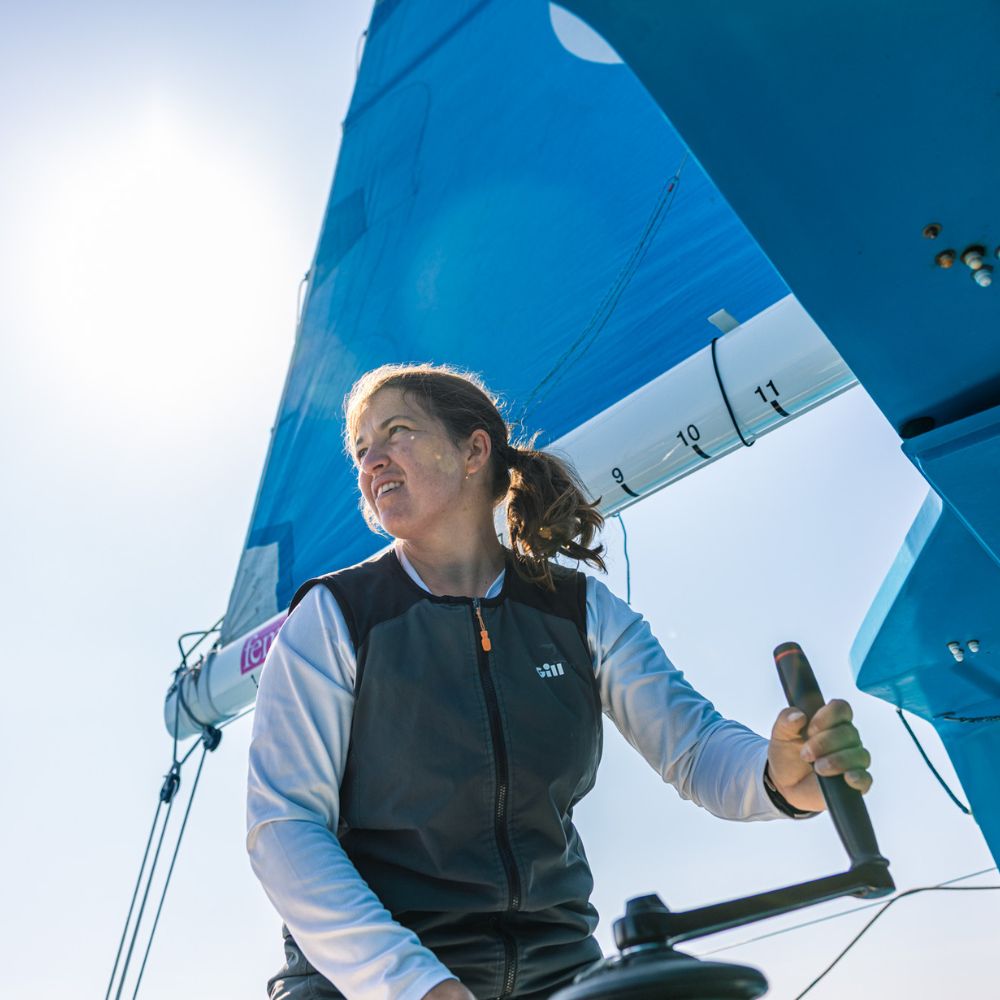
7. What’s one thing you’re most excited about, and one thing you’re most apprehensive about, regarding the upcoming Transat Café L’Or?
What I’m most apprehensive about is the unknown. You can prepare everything, train hard, and still face unexpected problems, whether technical, weather-related, or just the reality of being offshore for so many days. But that’s part of the challenge, and I try to see it as something to embrace rather than fear. With Axelle by my side and a solid boat, I know we’ll face whatever comes.






